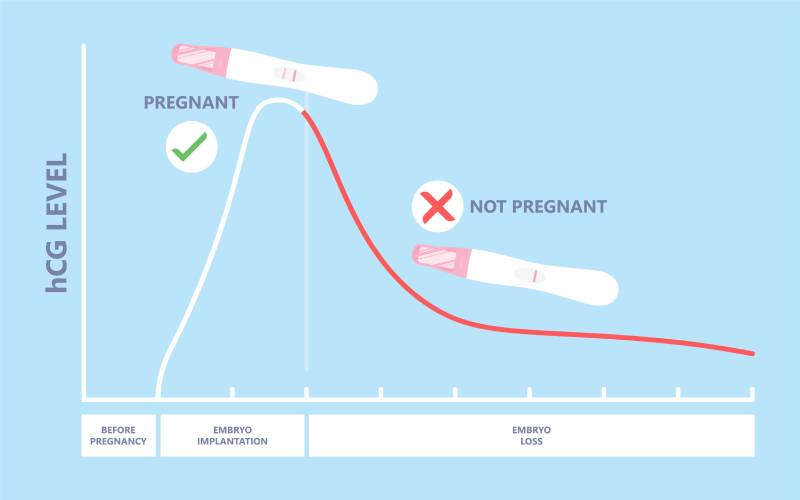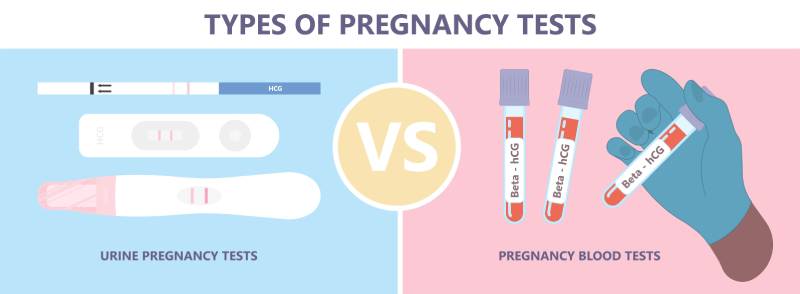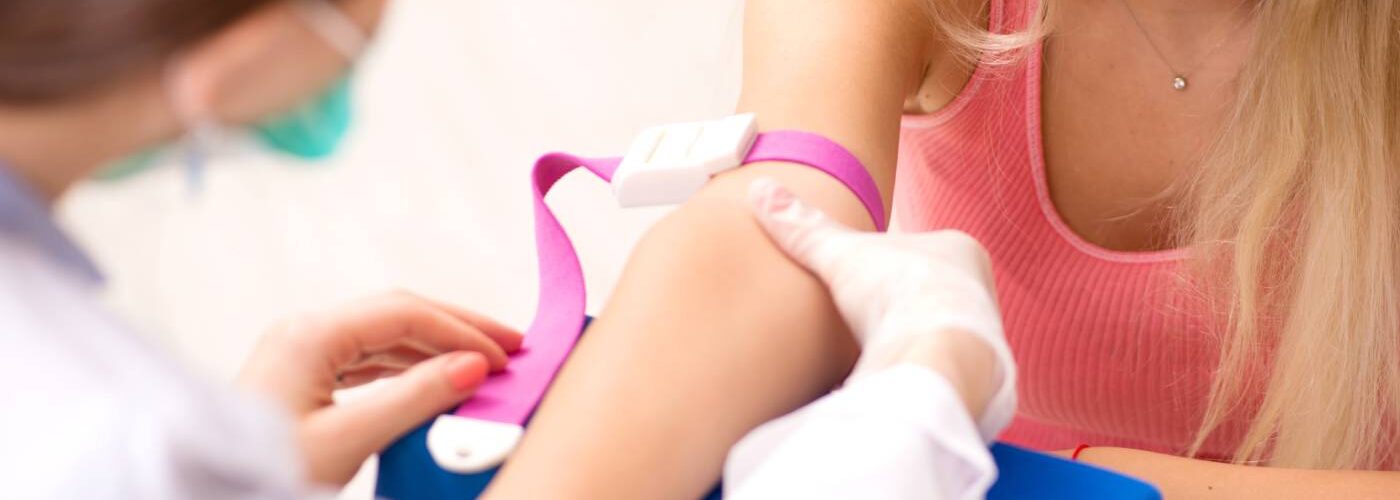
What’s the earliest you can take a pregnancy test? This is the first question many of our patients ask after blastocyst transfer, the culmination of the IVF treatment cycle. It’s completely understandable. After all, our patients have gone through a lot, emotionally and physically, to reach this stage. However, there are a few factors that make it more complicated for IVF patients than for other types of pregnancy.
In this article we will explain the reasons for this and why a pregnancy test after an IVF day 5 transfer, if taken too soon, could quite easily come up with a false result, whether that’s positive or negative. The same applies to a pregnancy test after an IVF frozen embryo transfer. The right time for when to do a pregnancy test after blastocyst transfer is when you can rely on the accuracy of the result. Let’s see what this means.
What is blastocyst transfer?
When you go through the process of In Vitro Fertilisation (IVF), blastocyst transfer is what feels like the end of the process. This isn’t the case, of course, since the end of the process is pregnancy. This does not actually take place until the embryo has implanted in the lining of your uterus. It doesn’t happen for a few days, whether you are about to be pregnant by natural means or with the assistance of IVF.
These are the steps leading up to that exciting moment:
- We confirm a diagnosis. We agree a recommended treatment and establish a personalized protocol.
- There follows a period of around 15 days duration. During this you receive ovarian stimulating hormonal treatment to encourage your ovaries to produce multiple eggs.
- When these have reached an adequate number and matured sufficiently, you are given an injection of the hormone Human Chorionic Gonadotropin (hCG) which triggers final maturing of the eggs.
- Exactly 36 hours later, egg retrieval takes place. The eggs are immediately fertilized in the laboratory, either through mixing with your partner’s or donor’s sperm or through Intracytoplasmic sperm injection (ICSI).
- The resulting embryos are closely monitored during the following five days. During this time, all being well, they develop to the blastocyst stage. This is the time when our embryologists can select the healthiest embryo for transfer to your womb. Any unused healthy embryos can be frozen and stored for future use if necessary.
It is impossible for you, or our fertility specialists, to know whether the embryo transfer will result in pregnancy. The chemical changes that happen in your body if you have become pregnant are not detectable through a pregnancy test until around 11 days later. This is usually the time lapse, although since all cases are different, it may be slightly shorter or longer. Our IVF specialists will let you know the exact timing to take a blood test. If this is positive, an ultrasound scan follows 20 days later. At this point the pregnancy is visible and a heartbeat detectable.
When to take a pregnancy test after IVF
Home pregnancy tests work by registering the presence of hCG in the urine. Blood tests detect the presence of this hormone, which the embryo produces shortly after implantation. Its levels rise steadily throughout the first trimester and fall off through the remaining six months.
There is a potential problem with taking a premature pregnancy test at home after blastocyst transfer. Some of the hormones which you were given before retrieval of the eggs could still be circulating in your body, both in your bloodstream and urine. So, if you take a pregnancy test too soon after blastocyst transfer, a positive result could merely be reflecting the presence of hCG remaining from your treatment.
Conversely, a pregnancy test taken too soon may return a false negative because the blastocyst can take a few days to implant and another few before the resulting levels of hCG are sufficient to be detectable. Blood tests are more accurate. This is why we always ask you to attend your fertility clinic for a Beta hCG test to confirm your pregnancy.
Blood tests vs Urine tests
As we’ve explained, a blood pregnancy test provides more precise information than the home urine tests.
A urine test is a qualitative test that can detect the hormone beta-hCG in urine when its levels range between 25 and 50 mUI/ml. In traditional tests, the positive or negative result appears as a colored line or cross. If the control line does not appear, it means the test was not performed correctly and should be repeated. There are also digital tests that indicate whether a woman is pregnant and even how long it has been since conception.

A blood pregnancy test, on the other hand, can be:
- Qualitative: it only shows whether or not the woman is pregnant.
- Quantitative: it indicates the exact level of the pregnancy hormone.
Unlike the urine test, a blood test can detect much lower levels of beta-hCG.

How accurate are pregnancy tests?
In general, home pregnancy tests have a very high accuracy level. Due to the way they work, a false positive is unlikely. However, a false negative is more of a possibility, particularly on the day of or day after your missed period, because hCG levels could still be undetectably low. If you get a negative test but you ‘feel’ you might be pregnant, for example because of painful breasts or even morning sickness, it’s a good idea to take another test a week later.
Why do I need a blood test after IVF treatment?
When you are waiting to know whether you are pregnant following IVF treatment, it would not be a good idea to simply use a home testing kit. The reason you need to wait for two weeks following embryo transfer is the medication history. During the ovarian stimulation stage of the treatment, you will have been given an injection of hCG to trigger final maturation of the oocytes, 36 hours before retrieval of the eggs. The remains of the hCG could still be present in your body (and detectable in your urine) for some time afterwards. And that of course could invalidate the results of the home test. This is why, hard as it is, there’s no way around the
Specific timing for frozen embryo transfers
In the case of a test after an IVF frozen embryo transfer, you will not have had the injection of hCG to trigger maturity and ovulation. Therefore, the likelihood of a false positive because the hormone is still circulating in your body is not so much of an issue. However, even though you have not been through the egg retrieval process and your embryos may have been in storage for a time, there is still a certain amount of medication involved in preparing your womb lining for reception of an embryo.
There is another factor to take into account in the case of frozen embryo transfer. This is that unlike fresh embryos which you could expect to implant within a day or two, it can take a few more days for frozen embryos, up to five days. Therefore in effect the same principles about pregnancy testing apply, though for slightly different reasons. The overall aim is to avoid the emotional distress caused by either a false positive or a false negative. You can be able to have complete confidence in the results.
Common symptoms during the two-week wait
The beta wait is a period full of uncertainty, and many women look for possible early pregnancy symptoms, even if it’s still too soon. What often creates even more anxiety is that some women notice signs while others feel nothing at all—even when the embryo has already implanted.
Here are some of the symptoms that may appear during the beta wait:
-
Tiredness or fatigue
-
Mood swings or emotional ups and downs
-
Cramps or discomfort similar to menstrual pain
-
Breast swelling, tenderness, or sensitivity
-
Spotting or bleeding
Spotting may come from implantation bleeding, but if there is any doubt—especially if the spotting is heavier—it’s always important to consult a specialist. Remember that the IVI team is available to help you with any questions or concerns during these days.
Tips for getting through the two-week wait
We do understand how stressful it can be to have to wait those 11 days before having your blood test to confirm your pregnancy. It’s easier said than done to keep calm and carry on. We also know from experience that a false result can be even more distressing. So, stay as calm as you can, look after yourself. Remember that even if a single round of treatment turns out not to be successful, in most cases we can try again. In the meantime, why not browse our tips for dealing with IVF and the two-week wait?





Comments are closed here.